The Emergence of a New Civil Religion
Something extraordinary is happening in American spiritual life. As traditional religious institutions decline, new forms of meaning-making have emerged, creating what scholars call a New Civil Religion. This contemporary spiritual landscape is characterized by its provision of meaning, purpose, community, and ritual outside traditional religious frameworks. Within this context, Donald Trump and the MAGA movement represent a unique manifestation of this New Civil Religion, blending elements of self-making, positive thinking, and reactionary atavism into a potent spiritual and political force.
The Historical Roots of Self-Creation
To understand how we arrived at this moment, we need to trace the genealogy of self-creation in Western culture. This history begins, crucially, with Martin Luther's radical reconception of religious authority. By establishing an inner/outer distinction within the self and emphasizing personal experience in matters of faith, Luther inadvertently set the stage for the individual's internal authority to become paramount in matters of meaning and truth. His insistence that no external body should mediate between the individual and sacred text would eventually evolve far beyond what he could have imagined.
From this foundation, as Tara Isabella Burton demonstrates, the theology of self-creation developed through four crucial stages. The first emerged in the European Renaissance, where figures like Albrecht Dürer began presenting themselves in ways previously reserved for religious figures. The self-maker appeared as a kind of demigod, a special being chosen by God or nature to participate in the divine right of creation. This wasn't democratic – not everyone was seen as possessing this ability – but it established a revolutionary precedent.
The Enlightenment transformed this exclusive divine right into a broader philosophical revolution. Thinkers began to recognize that customs around food, clothing, and sexuality weren't divinely ordained but human constructions. This disenchantment of custom made everything open to interpretation based on individual reason. Authority and social custom came to be seen not as sacred guides but as obstacles to authentic selfhood.
The nineteenth century witnessed what Burton calls the "re-enchantment of desire," which took two distinct forms. In Europe, an aristocratic model emerged through figures like Beau Brummell, who turned self-presentation into an art form and even a kind of magic. Dandies were seen as miniature gods, with some occultists developing systems for turning self-presentation into literal magical practice. In America, a more democratic model emphasized self-made success through determination, exemplified by figures like Frederick Douglass.
These threads ultimately resolved in the cultural figure of the Hollywood star – a being whose power to create and project a self raised complex questions about authenticity and performance. Meanwhile, the rise of consumer capitalism and Gilded Age wealth created new possibilities for purchasing identity and meaning. This merged with New Thought's emphasis on positive thinking as a path to health and wealth, teaching that people could manifest their divine potential through creative visualization. Failure – whether physical illness or financial ruin – was recast as a failure of self-confidence, a mind that hadn't properly manifested its potential.
This history has only accelerated in our own time. Postmodernity's critique of normative reason made space for new forms of spiritual authority. The internet has enabled individuals to connect with others who share their beliefs, further incentivizing spiritual individualism. Consumer culture offers endless opportunities to purchase meaning, purpose, community, and ritual. What began with Luther's emphasis on individual religious experience has evolved into a spiritual landscape where the self is the highest authority, and personal desire has become a sacred force.
The Theology of Self-Making: Trump as Archetype
This history helps us understand our present moment, where surveys indicate that half of Americans believe in manifesting – the idea that thoughts can directly shape reality. It also helps us understand Donald Trump's public persona. Trump represents the apotheosis of American self-creation – a man who through sheer force of will and relentless self-promotion transformed himself into a living brand. From his early real estate days through The Apprentice and into politics, Trump demonstrated an almost mystical belief in the power of assertion. In Trump's world, things that weren't true, especially about yourself, could become true if you said them loud enough and with enough conviction.
This isn't just showmanship; it's theology. Trump's worldview was profoundly shaped by Norman Vincent Peale and the power of positive thinking movement. This wasn't just about optimism – it was about the belief that human thoughts and desires could literally reshape reality. Yet as philosopher Byung-Chul Han warns us, this obsession with positive thinking and self-optimization comes at a devastating cost. The constant pressure to perform, to project success and strength, creates what Han calls a "performance society" where freedom becomes indistinguishable from coercion.
In our post-Christian world, the desire to be a god is a distinctly modern tendency. When traditional religious frameworks fade, what remains is the shape of our desires – the belief that we truly, really, authentically are whoever we want to be.This is the closest thing many have now to a Divine force, a sacred force, a magical force.
From an evolutionary perspective, our susceptibility to such beliefs isn't accidental. Natural selection has organized our minds so that we do not see reality clearly but instead serve our genetic self-interest through various forms of self-deception. The power of positive thinking taps into this evolved tendency, promising that we can bend reality to our will through the force of belief alone. Trump tapped into something deeper and more primal about the American cultural consciousness, something that felt truer than ever in our era of carefully curated Instagram feeds and personal brands – but also something that speaks to our collective exhaustion.
The Commodification of Community in Digital Space
The movement's power partly stems from its ability to create strong community bonds through opposition. MAGA followers aren't just united by what they believe in, but by who they stand against – the "elites," the "deep state," the "radical left." This opposition creates a powerful sense of shared identity and purpose. However, as Han astutely observes, what appears as a community might actually represent its erosion, as individuals relate to each other primarily as competitors in an endless performance of success and grievance.
Han's insight cuts even deeper: "The origin of culture lies in community. Culture teaches symbolic values that found a community. The more culture becomes a commodity, the more it leaves its origin behind. The total commercialization and commodification of culture leads to the destruction of community." This is precisely what we see in MAGA – a movement that transforms community into a branded commodity, complete with merchandise, rallies that feel like rock concerts, and social media performance. "The 'community' that is so frequently invoked on digital platforms," Han warns, "is a commodified form of community. Community as a commodity spells the end of community." The movement's heavy reliance on social media amplifies this dynamic, creating echo chambers that reinforce biases and hinder genuine dialogue.
Atavism and the Politics of Nostalgia
Yet MAGA isn't just about self-creation and positive thinking. It contains a strong atavistic element – a yearning for a mythological past and a rejection of progressive social change. As Burton observes, "Trump's vision of making America great again is explicitly atavistic. His perceived virility is inseparable from his vision of the imagined pre-political-correctness America, in which men like him more easily thrived." This combination of forward-looking self-creation and backward-looking nostalgia might seem contradictory, but it captures something essential about our moment. We want to be absolutely free to create ourselves, yet we also long for the certainties of an imagined past.
The movement's relationship with truth reveals another layer of complexity. As Burton notes, "To some, Trump's election confirmed that nothing really matters. His callous disregard for the truth is the ultimate form of disengaged machismo." This nihilistic stance – where truth becomes merely a function of power and desire – emerges naturally from the collapse of traditional frameworks of meaning. When the self becomes the highest authority, truth becomes whatever serves the self's desires.
Truth, Power, and Tribal Consciousness
These contradictions extend into the movement's relationship with truth and power. While celebrating individual self-making, MAGA demonstrates strong authoritarian tendencies. While preaching personal responsibility, it often operates through conspiracy theories that deny objective reality. Han would recognize in this the loss of what he calls "negativity" – the capacity for contemplation and deep thought that enables genuine understanding. The movement's rejection of intellectualism and nuanced perspectives reflects this loss, perpetuating simplistic narratives that resist critical reflection. In a world where "nothing really matters," where truth is whatever serves the self's desires, the only remaining authority is the will to power. These aren't bugs in the system – they're features of a spiritual movement that has made individual desire its highest authority.
The MAGA movement transformed these individual spiritual impulses into a collective experience. It provided a clear narrative of national decline and restoration, with Trump promoting himself as the only person capable of delivering America and making the country "great again." From an evolutionary perspective, this activates ancient tribal mechanisms that evolved to help our ancestors form tight-knit groups in times of perceived threat. These psychological modules, which once helped bands of hunter-gatherers survive, now fuel political polarization and generate a "tribal consciousness" – the tendency to see our group as inherently virtuous and opposing groups as fundamentally evil. MAGA rallies became a form of religious ritual, creating moments of collective effervescence where individual desires for transformation could be expressed through communal experience.
Beyond the Politics of Self-Creation
Understanding MAGA through this lens of religious studies and cultural analysis helps us grasp both its appeal and its dangers. It's not enough to dismiss it as mere politics or simple demagoguery. What we're witnessing might be understood as a form of modern dandyism – the desire to be seen as special without traditional moorings of birth or blood – but occurring in a society that, as Han notes, has lost its ability to determine a coherent moral framework. We're witnessing the emergence of a new form of spiritual-political fusion, one that will likely influence American society long after Trump himself has left the stage.
As we move forward, we need to better understand how spiritual needs shape political movements, how individual desires for transformation can be channeled into collective action, and how new forms of meaning-making emerge in times of institutional decline. Perhaps most crucially, we need to explore alternatives to the tribal consciousness and self-deception that characterize our current moment. The story of MAGA and the New Civil Religion isn't just about Trump or contemporary politics – it's about the everlasting human search for meaning, purpose, and transcendence in an increasingly uncertain world.
More Resources
Self-Made: Creating Our Identities from Da Vinci to the Kardashians by Tara Isabella Burton (book)
The Expulsion of the Other: Society, Perception and Communication Today by Byung-Chul Han (book)
Self-Creation by Tara Isabella Burton (lecture)
Substack Paid Members Livestream
Join Ryan Burge (Graphs about Religion) and Tripp Fuller (Process This) for an illuminating livestream conversation exploring the dramatic transformation of America's religious landscape.
Distrust and Denominations in the 21st Century
Friday, March 7th (12noon PT / 3pm ET)
This conversation will be livestreamed for paid subscribers.
Using compelling data visualization, they'll unpack:
The accelerating decline of trust in traditional religious denominations
The remarkable rise of non-denominational churches across the country
What these trends reveal about changing American religious identity
The social and political implications of these shifts
Through analysis of multiple datasets and striking visualizations, Burge and Fuller will examine how Americans are reimagining their relationship with organized religion in the 21st century. Their conversation will explore not just what's changing, but why these shifts matter for understanding modern American society.
A Five-Week Online Lenten Class
Join Dr. John Dominic Crossan for a transformative 5-week Lenten journey on “Paul the Pharisee: Faith and Politics in a Divided World.” This course examines the Apostle Paul as a Pharisee deeply engaged with the turbulent political and religious landscape of his time.
Through the lens of his letters and historical context, we will explore Paul’s understanding of Jesus’ Life-Vision, his interpretation of the Execution-and-Resurrection, and their implications for nonviolence and faithful resistance against empire. Each week, we will delve into a specific aspect of Paul’s theology and legacy, reflecting on its relevance for our own age of autocracy and political turmoil.
ASYNCHRONOUS CLASS: You can participate fully without being present at any specific time. Lectures and livestream replays are available on the Class Resource Page.'
CHURCH GROUPS: You are welcome to use this class for your Sunday School class or small group! More details available via the button below.
COST - PAY WHAT YOU WANT: A course like this is typically offered for $250 or more, but we invite you to contribute whatever you can to help make this possible for everyone (including $0)!
Get Tickets for Theology Beer Camp!
Have You Joined Theology Class Yet?
Process This with Tripp Fuller is a reader-supported publication. To receive new posts and support my work, consider becoming a free or paid subscriber.




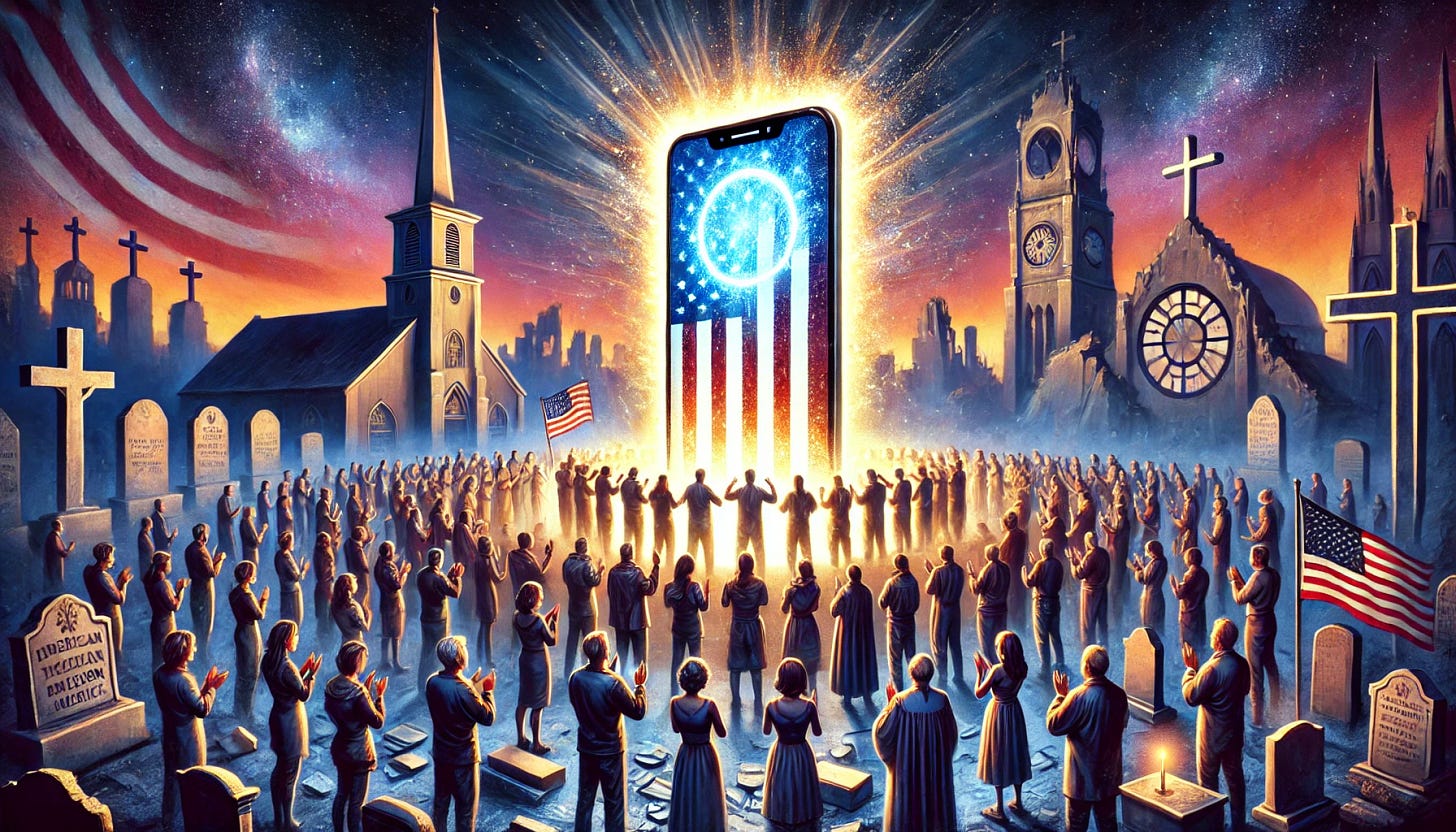
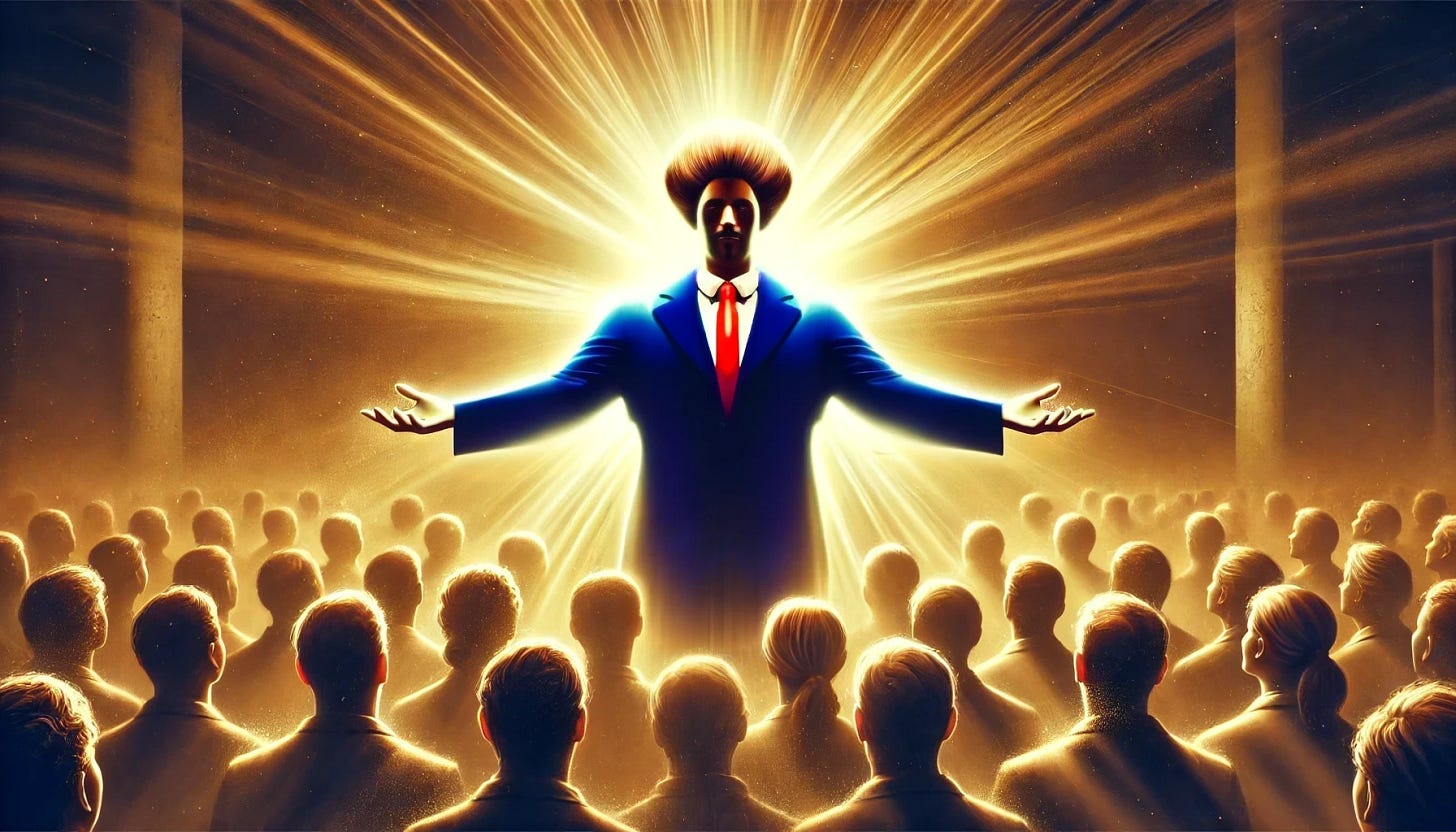

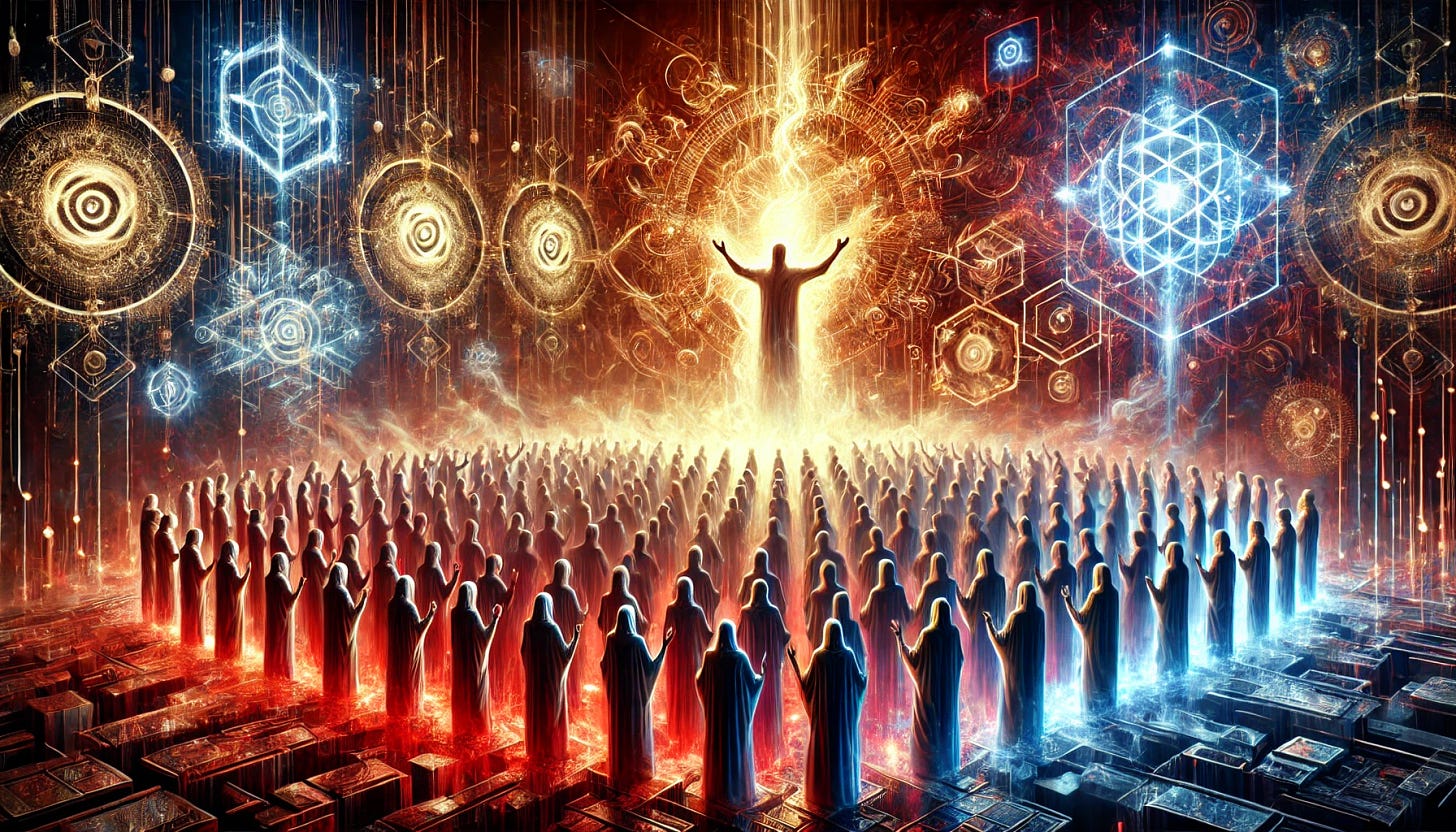
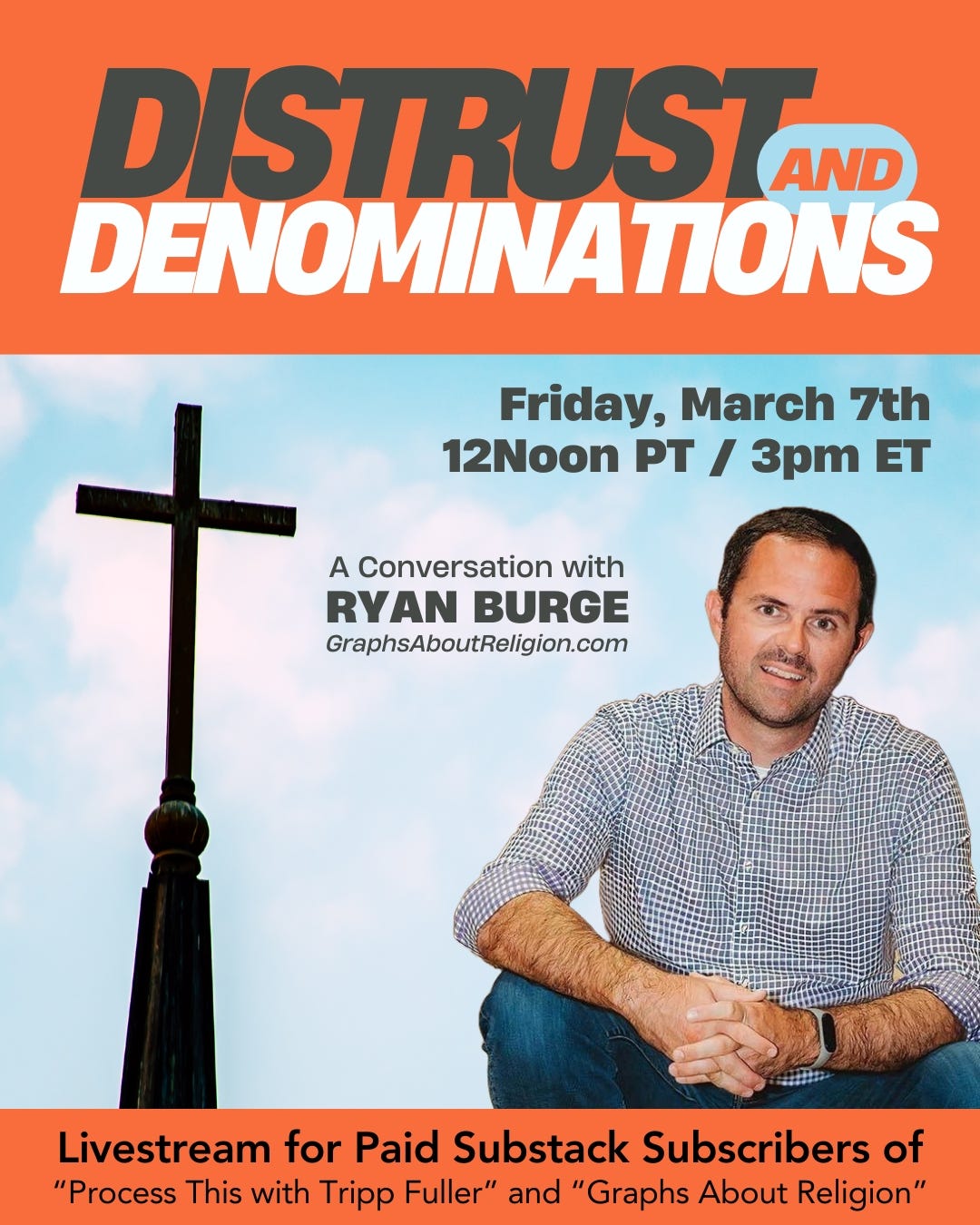
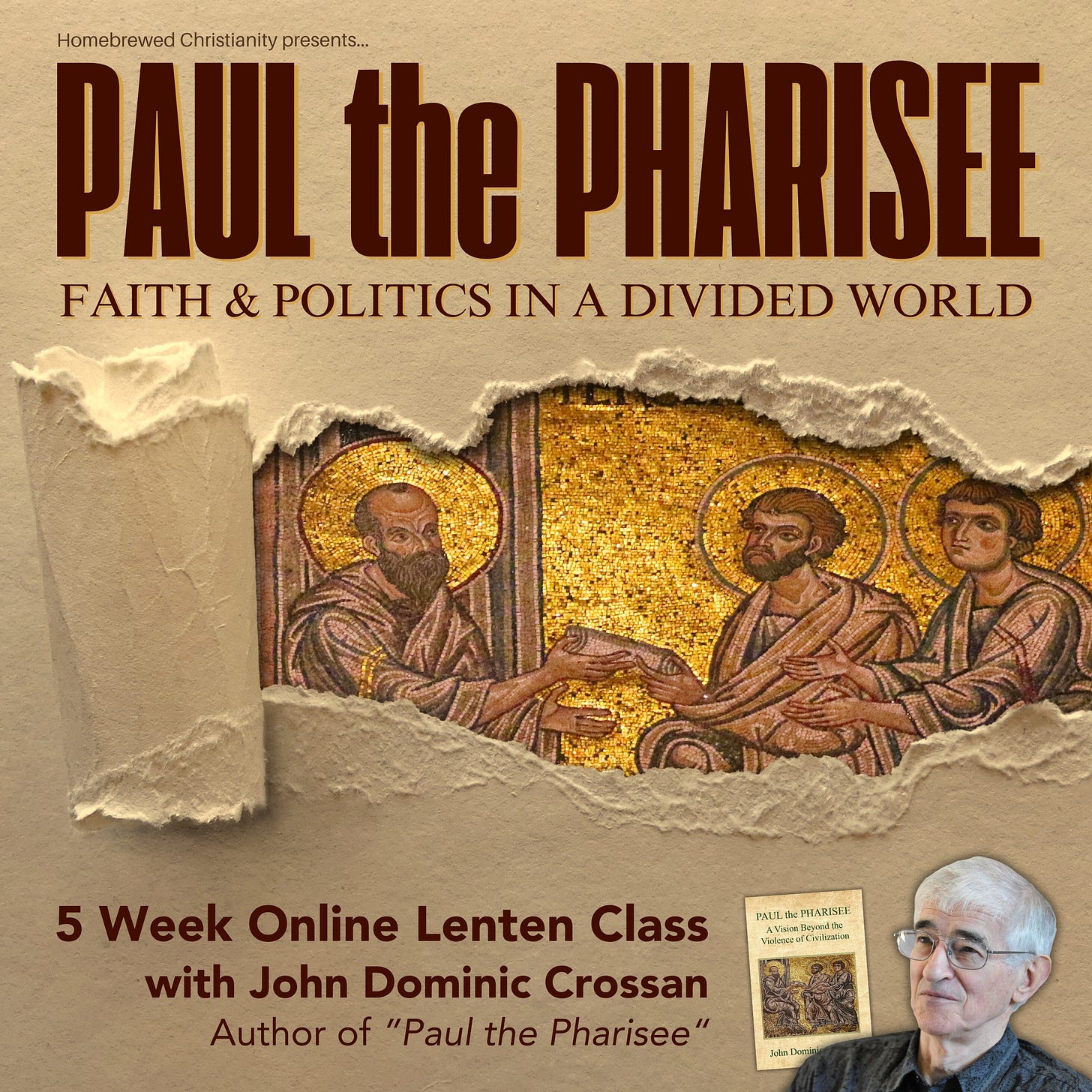
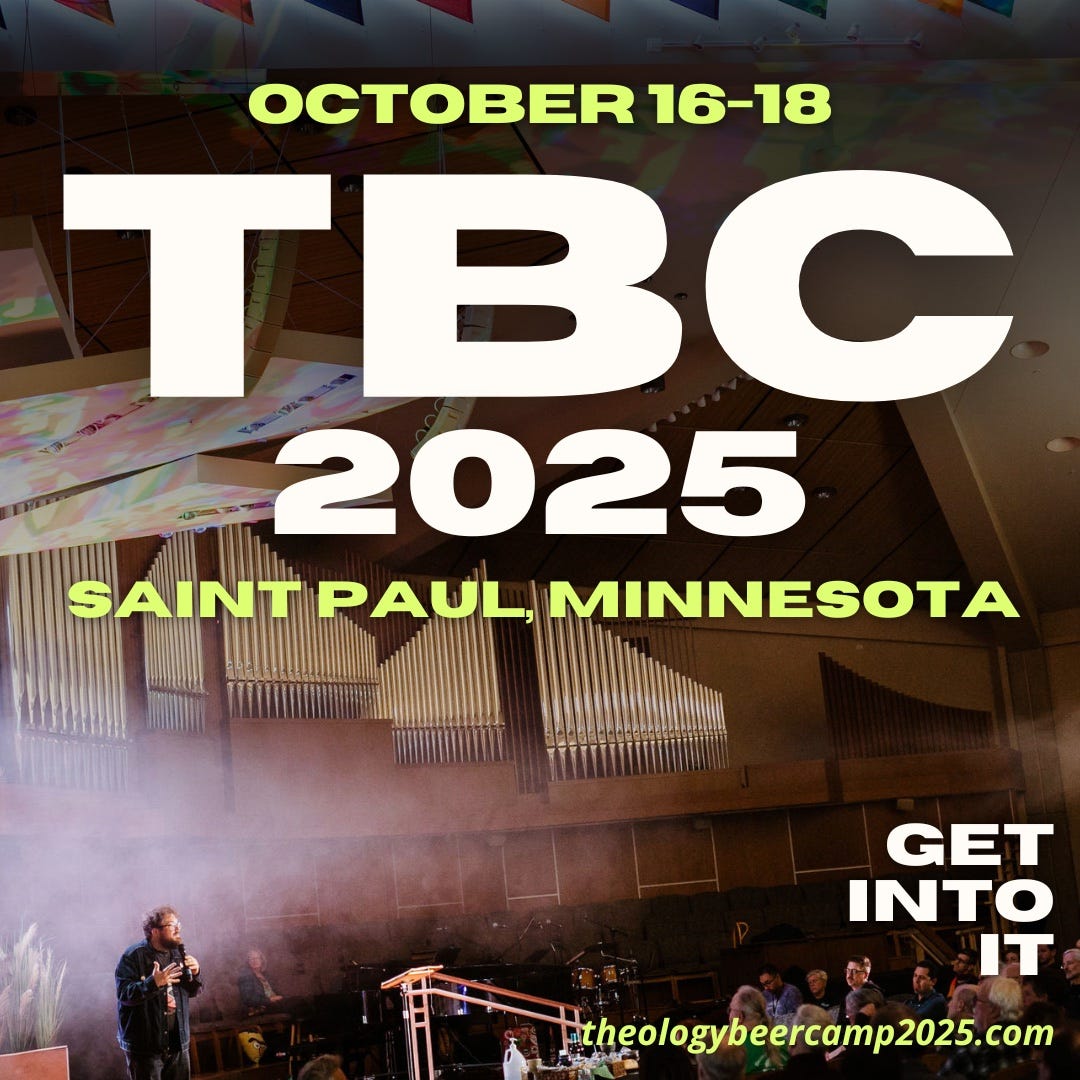
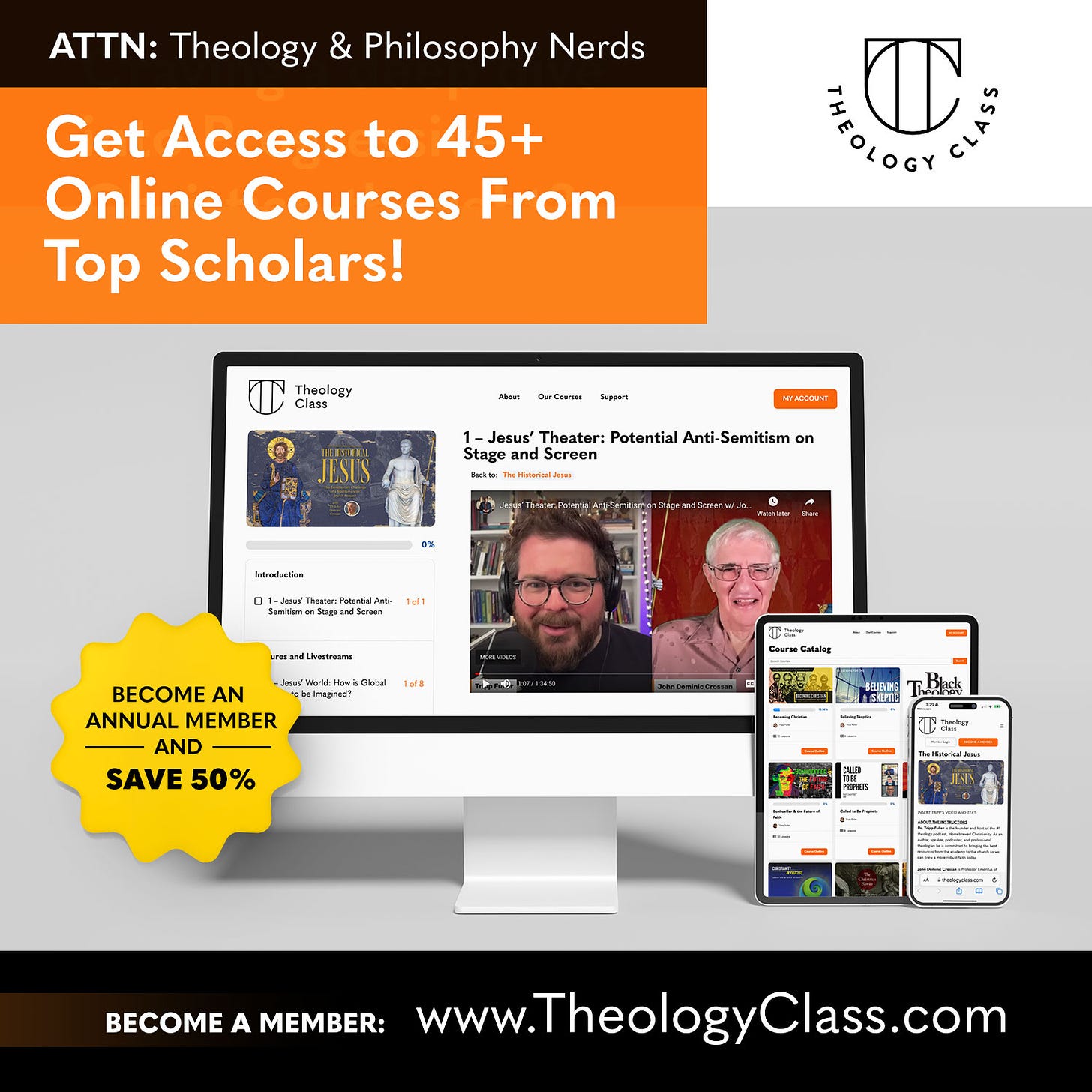









Share this post